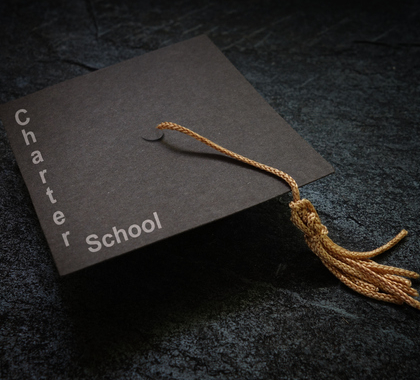Over the past 15 years, the Opportunity Scholarship Program (OSP) has become the Little Engine That Could among school choice programs in the United States.
Like the train in the popular children’s fairy tale, OSP has overcome daunting obstacles. It has enabled thousands of underprivileged students in Washington, D.C., to transfer to safe schools where they have experienced academic and personal successes.
As the nation’s first federally funded school voucher program, and the product of a fragile bipartisan accord between the George W. Bush administration and congressional Democrats in 2004, OSP was bound to command an unusually high degree of scrutiny. Objective evaluation is a good thing. But schemes to crush this lifeline for needy kids are petty and perverse.
During President Obama’s eight years in office, his administration tried mightily and persistently to freeze enrollments and ultimately snuff out OSP. Of course, this came at the behest of teacher unions, which cannot tolerate the smallest degree of parental choice competing with their public school monopoly.
The optics of trying to kill education choice for D.C. kids from low-income neighborhoods were grotesque given that the Obamas chose to send their own children to an elite private school in D.C. During his tenure as speaker of the house, John Boehner (R-OH) helped stave off Obama’s folly by using his clout to preserve OSP.
Another threat to OSP has come from educationist scholars who are trying to inflate any speck of negative findings from federal evaluations into a full-bore attack on OSP.
For instance, an education professor slammed OSP for having a negative impact on math achievement by students two years into their chosen schools, while neglecting the finding that voucher students completely overcame that math deficit in their third year.
Furthermore, the professor ignored third-year findings of OSP’s positive effect on safety, absenteeism and level of satisfaction. Previous studies showed voucher students’ graduation rates at least 20 percentage points higher than for peers who sought but did not receive a scholarship.
Even modest gains are impressive, given that OSP is achieving them for just one-third what District of Columbia public schools spend per pupil (approximately $28,000 per year, as opposed to an average $9,600 voucher for an OSP student).
“That means,” observed Reason Foundation analyst Corey DeAngelis, “a K-12 education costs around $364,000 for each child in D.C. public schools, but only about $125,000 for each voucher student.”
Unfortunately, the Little Engine That Could has to propel itself against an ever-increasing burden of congressional regulations regarding testing, accreditation, the Individuals With Disabilities Education Act and sundry other matters. Heritage Foundation education expert Lindsey Burke recently explained in detail how regulatory creep is hurting OSP by making participation less attractive to private schools.
If more people of good will could understand what a difference 10,700 scholarships have made in America’s capital city – and what a great success story this is about empowering individuals –then OSP could achieve much more in the next 15 years.
Perhaps a motion picture could bring the story to life. “Miss Virginia” might well do just that after its expected release later this year.
“Miss Virginia” is based on the courageous battle of Virginia Fowler Walden Ford, who advanced the cause of educational opportunity for all children. Emmy Award-winning actress Uzo Aduba will play the lead role.
Ms. Ford’s first challenge came in the mid-1960s, a time of great racial tension in the South, when she and her twin sister Harrietta were among the first 130 students to brave ugly taunts and jeers to desegregate Little Rock schools. As a struggling single mom rearing three children in DC in the 1990s, she led grassroots organizing of parents to petition Washington’s local and federal authorities for better alternatives to dangerous, failing schools.
How that effort culminated in the Opportunity Scholarship Program is an inspiring story with application not just to the federal city but to communities across the country that could benefit from their own engines of educational liberation.
[Originally Published at The Hill]





